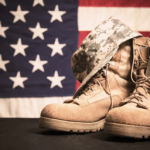
This article was first published in The Washington Examiner on June 19, 2023. Click Here to read the original article.
On June 15, 1775, at the insistence of both John and Samuel Adams of Massachusetts, the Continental Congress approved George Washington to command the still-inchoate American military. Washington was well-prepared for the job, but the worrying lack of qualified competitors emphasized the enormous challenges facing the incipient Continental Army.
Beyond ability, Washington’s elevation rested on hard political logic. Arduously and carefully, New Englanders had been striving to forge a unified, national consciousness for independence. They recognized that many who shared their grievances against London were not yet ready for independence, and that time was not necessarily on their side.
Accordingly, to prepare to confront Great Britain’s world-class military, independence advocates wanted to ensure support throughout the colonies. With the Declaration then still a year away, they saw correctly that fashioning a “one nation” army (to paraphrase Benjamin Disraeli) was critical. Virginia’s Washington took command of New England troops surrounding Boston and spent the entire Revolution fashioning a national military. One profound success was ordering the inoculation of all soldiers who had never had smallpox, without exception.
The Constitution’s Framers, many having served in the Continental Army, well remembered the Revolution’s travails, with a barely working Continental Congress and recalcitrant state governors and militias. They cemented the concept of a national military, vesting commander in chief authority in the president, the first of whom they fully expected to be Washington. His 1796 Farewell Address summarized his strong dedication to a common identity: “The name of American, which belongs to you in your national capacity, must always exalt the just pride of patriotism more than any appellation derived from local discriminations.”
Building a “one nation” military was a significant piece of the larger effort to keep the United States united, hopefully immunizing it from persistent foreign efforts to weaken and split it. Riven, however, by the intractable dispute over slavery, the project failed spectacularly, and the Civil War resulted. Almost all senior Confederate officers were formerly in the U.S. military, a disheartening, nearly fatal collapse in the national-unity effort. To see so many violate their oath of allegiance to the Constitution was searing proof of how badly divided the country was.
Since the Civil War, the United States has faced no political question so existential as slavery. The military has, with notable exceptions, tried to remain nonpolitical, so much so, for example, that General George C. Marshall never registered to vote. Today, however, the Pentagon is a battlefield in the ongoing cultural wars, every minute of which is detrimental not just to our military capabilities, but to the national unity that we have sought since the outset to embed in the uniformed services. Our contemporary concerns have little to do with explicit regional divisions, but with other differences equally dangerous to a “one nation” military.
“Wokeness” covers a broad category of bad ideas, but the most pernicious, in my view, is the deindividuation of America’s citizenry, identifying them not as themselves but as members of groups based on race, ethnicity, and gender. This self-described “identity politics” is fundamentally contrary to the concept of individual liberty, which rests on the proposition that every American citizen is unique.
Critically, however, the proper refutation to racial or other classifications should not itself increase the pressures toward more disunity. It is stunning that a Republican House member, who took an oath of office to “support and defend the Constitution of the United States,” could say, “We need a national divorce. We need to separate by red states and blue states.” Of course, one could easily imagine a similar statement from an equally unlettered counterpart on the other side of the aisle.
As profoundly discordant as wokeness is in civil society, it is far worse in the military, spreading dysfunction and disharmony among servicemembers whose duty is to defend the country, not to be laboratory specimens for social experimentation. To be sure, the military reflects society’s flaws in discrimination based on race and sex, but it had made enormous progress not by exacerbating differences, but by treating them as irrelevant and, indeed, potentially dangerous to its mission if mishandled.
Fortunately, we do not have to look far for a summary of what should comprise a “one nation” military. In a military recruiting pitch some years ago, President Joe Biden’s nominee as Chairman of the Joint Chiefs of Staff, Air Force General C.Q. Brown, said:
“When I’m flying, I put my helmet on, my visor down, my mask up. You don’t know who I am — whether I’m African American, Asian American, Hispanic, White, male, or female. You just know I’m an American Airman, kicking your butt.”
If Brown is confirmed as chairman and adheres to that unmistakably “one nation” message, we may be on the road to recovery. If not, our adversaries will simply see a more-distracted and potentially divisible U.S. military.